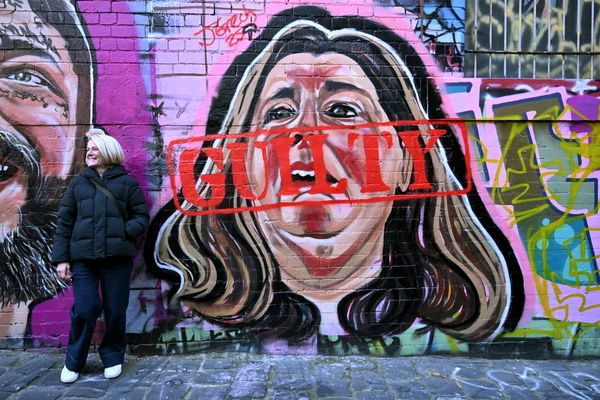
Holidaymakers planning to travel to Spain will need to have been vaccinated against Covid-19 within a specific timeframe from 1 February, it has been confirmed.
Following the European Union Commission’s recommendations, authorities in Spain have announced that only vaccination records that show a final dose within the last 270 days will be recognised.
This means that people who received their most recent jab more than nine months ago will need to get a booster shot before entering the country.
However, the country is also set to ease Covid rules on the ground from this month, with plans to drop a strict rule on mask-wearing outdoors from as early as 9 February.
There has been a surge in Covid cases throughout the country in recent weeks, with the fast-spreading Omicron variant accounting for up to 98 per cent of infections.
Since late December, travellers have had to abide by rules including wearing masks in public outdoor settings.
Spain and its islands have long been a favourite destination for Britons, with more than 18 million holidaymakers visiting this Mediterranean hotspot in a normal year. However, the coronavirus pandemic has decimated the travel industry.
So can you book a Spanish getaway – and what are the current rules on travel? Here’s everything you need to know.
Are British holidaymakers allowed to travel to Spain?

Yes - but only the fully vaccinated.
From 1 December, unvaccinated Britons were banned from entering Spain, a measure announced in late November.
Previously, anyone with a negative PCR test result from within the previous 72 hours could enter Spain for work or leisure purposes.
But from early December, travellers from the UK were required to show proof of a full course of a Covid-19 vaccine, with the second dose administered at least 14 days before travel, in order to enter the country.
Non-resident travellers from the UK must be double-jabbed with a vaccine authorised by the European Medicines Agency or the World Health Organisation in order to gain entry - but booster shots are not currently included in the requirements.
A valid, in-date NHS Covid Pass will suffice as proof of vaccination.
It must be an in-date Pass, too: downloaded versions of the NHS Covid Pass are dated and expire after 30 days.
As stated above, only proof of vaccination having been received within the last 270 days will be recognised for entry.
This means that people who received their last jab more than nine months ago will need to get a booster shot before entering the country.
Before travel to Spain, all passengers must also complete and sign an online Health Control Form no more than 48 hours prior to travel, declaring any known history of exposure to Covid-19 and giving contact details.
Anyone who has not completed this form electronically via the Spain Travel Health website or app may submit it in paper format prior to boarding.
Certificates of recovery - a medical document certifying that you have recovered from Covid-19 in the last six months prior to travel - are not currently accepted for arrivals from the UK.
Depending on which region you’re travelling to, you may need to show your proof of vaccination to enter accommodation or local venues while in the country.
Are unvaccinated children allowed into Spain?

Only those under 12 years old.
Children aged 11 and under are exempt from the proof of vaccination requirement, but must still be accounted for in a Health Control Form filled in within the 48 hours before travel.
Unvaccinated children aged 12 and above are not currently allowed into Spain.
What are the UK rules when I return from Spain?
Up until 11 February, fully vaccinated travellers returning from Spain must have a “day two” test booked to take within the two days after arrival.
They must also complete a Passenger Locator Form (PLF) within the 48 hours before returning to the UK, for which they must have an order number for their day two test.
Day two tests can be lateral flow, rather than the pricier PCR test.
However, from 4am on 11 February, all Covid testing requirements for vaccinated travellers arriving into England are to be scrapped, the government confirmed in January.
From 11 February, unvaccinated people (who may have travelled to Spain prior to the 1 December rule change) must take a pre-departure lateral flow test and book a PCR test for the day of arrival or one of the two following days. The “day eight” test has been dropped, and they will no longer need to self-isolate upon their return (they must currently quarantine for 10 days on arrival).
How long will the new rules be in place?

At present, there is no current indication that the Spanish government intends to relax entrance rules to allow unvaccinated travellers permission to visit the country from the UK, or to increase the time limit on vaccination dates from 270 days.
As the summer holiday season approaches, however, it is possible that this may change depending on the status of Covid rates throughout the country.
What restrictions are in place in Spain?
Restrictions vary from region to region in Spain.
Last week, the Spanish government announced that it would be dropping the strict rules around mask-wearing - masks have been required outside in public places since 22 December - in early February.
“I can confirm that on Tuesday February 8th, we’ll take the Royal Decree to the Spanish Cabinet through which we will cancel the outdoor face mask rule,” health minister Carolina Darias told radio station Cadena Ser.
Depending on how long it takes to approve the new legislation, the face mask rule is expected to be lifted from either 9 or 10 February.
On 22 December ministers announced that mask rules would be tightened to cope with the spread of the Omicron variant, with face coverings needing to be worn by everyone in outdoor spaces.
At present, everyone over the age of six must wear a face mask in enclosed public spaces, on public transport and in crowded outdoor areas where it is not possible to socially distance.
Social distancing measures of 1.5m are also in place throughout the country.
Many sights and museums have limited capacity or now require visitors to book a time slot online in advance.
Some regions have their own restrictions, so you should check the rules for the region you are visiting before you travel - the Spanish tourist board’s Travel Safe website has an interactive map you can consult for regional rules.







